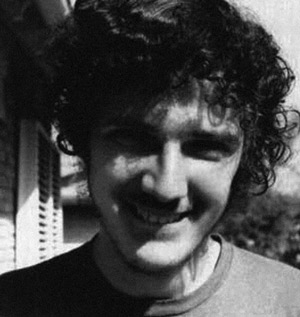
Dan Carney grew up in Highland Park but had moved away for many years — for college, a stint in the Peace Corps, and his first newspaper job in North Carolina — when he got a jarring phone call from his father early one Saturday morning in 1987.
He learned that his brother Paul had been brutally stabbed late one night while walking from a bus stop to where he worked, a halfway house for prison parolees in East Dallas. At the intersection of Bryan Street and Fitzhugh Avenue, someone had taken what must have been an ice pick to Paul’s face and head over and over. There was severe brain damage. He fell into a coma, kept alive by machines in the Baylor intensive care unit, and died a couple weeks later.
No suspect could be found. No motive could be established. Paul Carney’s death seems the definition of a senseless killing. But Dan Carney was a reporter, wounded by the loss of his brother, and so he was drawn to discover whatever he could about the man that his brother had become, to try to make any sense that he might of this crime.
I hope I never have to report on anything as personal and painful as the story Dan Carney wrote for the August 1988 issue of D Magazine, which we’re recognizing today as one of our 40 greatest.
Carney is now an editorial writer for USA Today. I reached out to him and asked for any thoughts he might share about this piece, 27 years after his brother was attacked on February 27, 1987. Here’s what he had to say:
The simple truth is that, once I finished with the final edit, I may not have ever read it again. That’s unusual for me as I tend to reread clips every time I reorganize my files. But that one was too painful wade into again.
In all honesty, I don’t know how I managed to write it. Not only was the topic hard to deal with, the mechanics of the piece involved a lot of tough interviews. The police, as I recall, were pretty uncooperative. And the interviews I completed were uncomfortable or awkward, or both. I remember talking to one of Paul’s ministers who insisted — either at the outset or in the middle of the interview, I don’t remember exactly — that we get down on the floor and pray. The hardest ones were with family friends who were instrumental in Paul’s work at Seidler House, some of whom were very wary of opening up, and probably would not have had the request not come from someone they knew. I got a note from one woman who had been friends with my parents since the early sixties thanking me profusely for not using any of her quotes in the article.
My two surviving brothers and my mother (my dad passed away in 2008) don’t talk that much about Paul’s death today. We’re a fairly stoic lot, not particularly good at venting emotions. (Unlike my wife’s family, where birth or death of a distant relative will bring tears.) We’ll talk about fun things we did growing up without dwelling on the events of his death.
My wife and I had pretty much decided that, if we had a son, we would name him Paul. But we ended up having just one child, a daughter.




